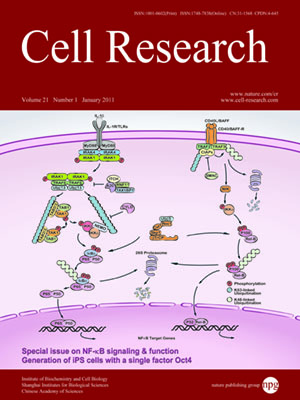
Volume 21, No 1, Jan 2011
ISSN: 1001-0602
EISSN: 1748-7838 2018
impact factor 17.848*
(Clarivate Analytics, 2019)
Volume 21 Issue 1, January 2011: 55-70
REVIEWS
NF-κB signaling pathways regulated by CARMA family of scaffold proteins
Marzenna Blonska and Xin Lin
Department of Molecular and Cellular Oncology, University of Texas, M.D. Anderson Cancer Center, 1515 Holcombe Blvd, Unit 108, Houston, TX 77030
Correspondence: Xin Lin,(xllin@mdanderson.org)
The NF-κB family of transcription factors plays a crucial role in cell activation, survival and proliferation. Its aberrant activity results in cancer, immunodeficiency or autoimmune disorders. Over the past two decades, tremendous progress has been made in our understanding of the signals that regulate NF-κB activation, especially how scaffold proteins link different receptors to the NF-κB-activating complex, the IκB kinase complex. The growing number of these scaffolds underscores the complexity of the signaling networks in different cell types. In this review, we discuss the role of scaffold molecules in signaling cascades induced by stimulation of antigen receptors, G-protein-coupled receptors and C-type Lectin receptors, resulting in NF-κB activation. Especially, we focus on the family of Caspase recruitment domain (CARD)-containing proteins known as CARMA and their function in activation of NF-κB, as well as the link of these scaffolds to the development of various neoplastic diseases through regulation of NF-κB.
Cell Research (2011) 21:55-70. doi:10.1038/cr.2010.182; published online 28 December 2010
FULL TEXT | PDF
Browse 2240


